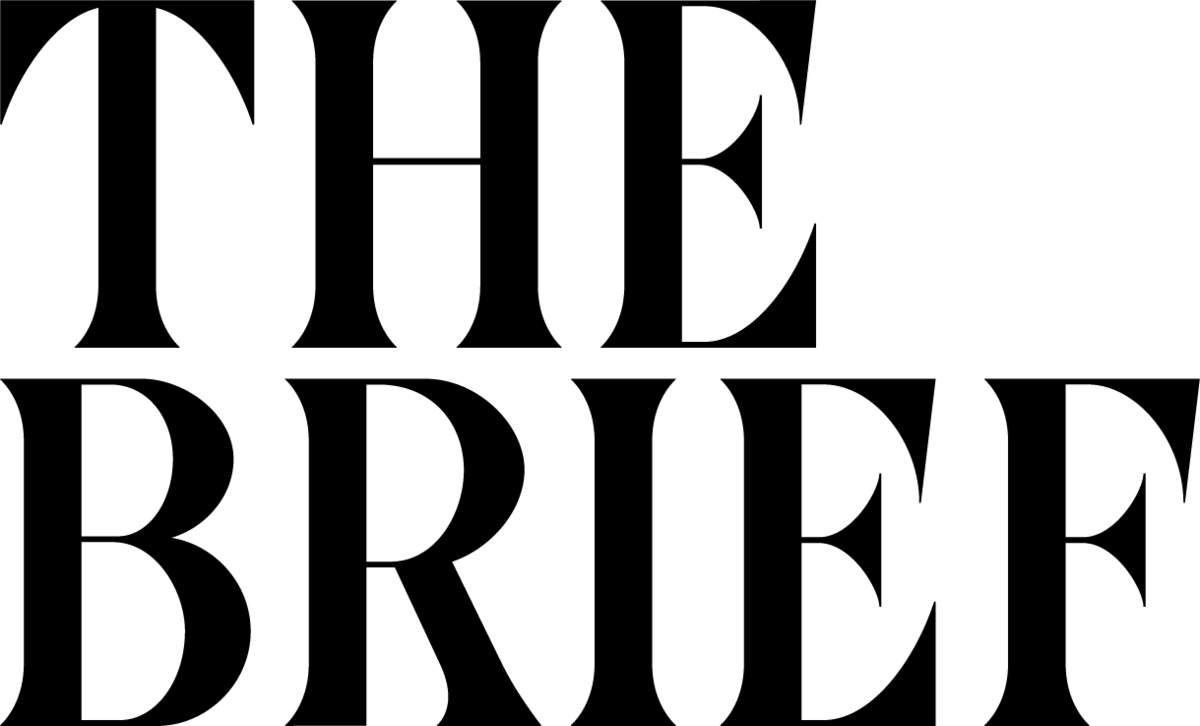18,936 founders and comms leaders start their weekend with The Colab Brief.
Join them to get weekly analysis of PR trends and non-traditional media moves.
Your job called—it wants better business news
Welcome to Morning Brew—the world’s most engaging business newsletter. Seriously, we mean it.
Morning Brew’s daily email keeps professionals informed on the business news that matters, but with a twist—think jokes, pop culture, quick writeups, and anything that makes traditionally dull news actually enjoyable.
It’s 100% free—so why not give it a shot? And if you decide you’d rather stick with dry, long-winded business news, you can always unsubscribe.

“It's not the crime, it's the cover up.”
#Signalgate was the story ‘heard round the world this week.
The Trump administration has weathered plenty of scandals, but this one has shown unusual staying power. According to Axios:
It’s the top story of 2025 globally across all English-language articles
News stories about Signalgate have seen 25 million readers across 463 articles
The story itself is ludicrous and deeply alarming. But the administration's response is also worth examining as it triggered a credibility crisis they've managed to avoid in the past.
In a few short days, several different government spokespeople have denied, downplayed, shifted blame, and parsed semantics. They’ve contradicted each other, they’ve been caught in lies, and they’ve generally made this as chaotic as they possibly could.
If you’re thinking “they’ve denied, downplayed, and shifted blame before”, you’d be right. But the administration made a critical mistake this time: they treated a major national security breach as just another political scandal. In doing so, they alienated Congress, the military, world leaders, and their core supporters—and they kicked off a true PR disaster.
'Never apologize if you haven't done something wrong'
Crisis comms has recently been embracing a defiant stance in the face of scandals.
It’s common now to see CEOs decline to admit wrongdoing or even acknowledge accusations. PR strategist Lulu Cheng Meservey has advised, "Never apologize if you didn't do something wrong."
This can work, but it’s a risky bet. Sometimes you are far better off owning up to what you’ve done so you can maintain trust and avoid the pain of a PR cycle digging up your lies.
In the case of Signal, the Trump administration’s refusal to admit wrongdoing has resulted in the very core of their base starting to lose faith:
A dozen Air Force and Navy pilots have expressed safety concerns, with one retired F-14 pilot warning that this inability to admit mistakes could prove deadly
Former marines have condemned officials for mocking Goldberg as "scum" while treating a security breach as merely a PR problem to be spun.
Even their base is worried—a YouGov poll shows 60% of Republicans consider this a serious issue.
When you’re losing your truest supporters, that’s a sign to redirect your comms strategy immediately. But importantly, you never have to get there in the first place.
How to survive a PR storm
Gravely serious mistakes happen, but companies can weather them with action and commitment to their customers. Tylenol is still the gold standard here after conducting a $100 million recall in response to cyanide-laced capsules that killed seven people.
How did Tylenol survive? Because they prioritized public safety over short-term profits and took decisive, immediate action
Should you find yourself in a storm like this, here are some things to keep in mind:
Lock down your story: Clarity is key. Before speaking publicly, get all stakeholders in a room and align on your message. If you need time to investigate, say so directly—transparency beats contradictory statements that undermine leadership.
Apologize when you're wrong: If you’ve made a serious mistake, own it. A straightforward "We messed up" earns more goodwill than the cleverest spin.
Designate a single spokesperson: Pick one credible voice as your public face. Signalgate failed here with multiple people offering contradictory narratives. One trusted voice maintains consistency and builds confidence.
Plan for escalation: Assume journalists will keep digging. Develop scenario plans instead of scrambling reactively as new information emerges.
Actions speak louder: Fix the problem visibly. Share concrete steps and welcome appropriate oversight—whether that's removing responsible parties, issuing recalls, or inviting investigation.
Mistakes happen, but crises can be managed. The path back from a crisis is found in respecting your audience, acknowledging your mistakes, and demonstrating the competence to fix them.
📱 New in non-traditional media
Tracking the newsletters, podcasts, and creators reshaping media influence.
📰 In the news
Upstarts starts up
Longtime Forbes reporter, Alex Konrad, launched Upstarts on Substack—a new media brand covering the startup ecosystem from inception through IPO.
Fast Company embraces creators
30-year-old Fast Company launched a creator network to publish weekly articles from independent newsletter writers on their website. They’re starting with eight creators covering topics like AI, marketing, and exec coaching.Buzzfeed reinvents itself
TechCrunch spoke with Buzzfeed founder & CEO, Jonah Peretti, about what’s next for his site. Spoiler—it’s a lot of AI.
🎤 Spotlight on Agtech creators
Looking to round out your coverage with more newsletters and podcasts? Here are some favorite non-traditional media outlets to pitch your next story [agtech edition]:
Hosted by agriculture entrepreneurs, Tim and Tyler Nuss
Weekly episodes interviewing farmers and leaders innovating the food and agriculture industry
100,000 subscribers; content arm of AgFunder venture capital group
Written by 3 former food and agriculture journalists
Weekly episodes featuring innovators at the intersection of ag & tech
Hosted by ag entrepreneur, Sarah Nolet
Hosted by NC Plant Sciences Initiative at NC State
Weekly interviewers with academic researchers, industry experts, growers, and producers in the agtech community
Emphasis on innovations in CEA and vertical farming
Weekly episodes rounding up the latest industry news
⭐ Favorite story of the week:
Welcome to the Semantic Apocalypse - Erik Hoel
This piece explores how this week’s flood of ChatGPT-generated Studio Ghibli images represents the "semantic apocalypse" - where art loses meaning through mass AI replication, our psychological relationship with creative works changes, and we become increasingly disconnected from art.
⚡ Steal this pitch
Here’s a real pitch we used to land expert commentary coverage for our client:
Subject line: SBTi Corporate Net Zero Commentary Available - [COMPANY]
Pitch:
[EXECUTIVE, TITLE] has expert commentary on the Science Based Targets initiative (SBTi) Corporate Net-Zero Standard (CNZS v2.0), ready to share.
With over a decade of experience in climate technology research and strategic advisory, [EXECUTIVE] has played a pivotal role as a member of [ORGANIZATIONS]. Her insights focus on critical aspects of the CNZS v2.0 draft, including:Residual emissions
Beyond value chain mitigation
Accountability and transparency
Are you interested in [EXECUTIVE’S] SBTi commentary? I’m happy to share.
💫 Client Wins
Our clients are making headlines. Check out coverage our clients got in Trellis, Just Auto, and MarTech Pod.
Want coverage like this? Say hello.

Like The Colab Brief?
Share with your friends
Micro-Engagements (Now Live!)
The Colab PR Template Pack (Now Live!)
SWAG [Exclusive]


